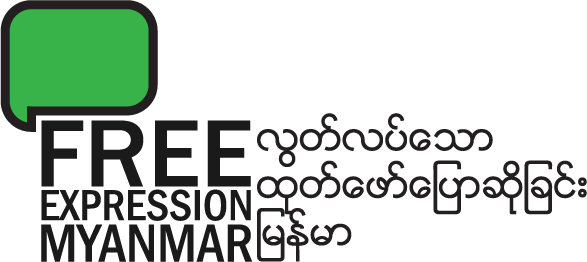Public Service Media Bill
Myanmar has a number of government-controlled broadcasters on radio and television, including channels run by the Ministry of Information and by the military.
The government needs to end all government-controlled broadcasters and create a public service broadcaster.
The USDP government proposed a Public Service Media Bill in 2014 to change some of the government-controlled broadcasters into public service media. The government withdrew the bill from parliament after public criticism.
International standards
The media should never be government-controlled in a democracy because the role of the media is to hold the government accountable. Government-controlled media cannot report independently as their work is set by the government and they will be punished if they criticise their bosses.
Public service broadcasters are owned by the government but controlled by an independent management so that the government cannot influence the content. They are created to cover public interest content.
Myanmar should give some of its limited number of television and radio channels to a public service broadcaster so that channels include diverse and plural content that is in the public interest, rather than just commercial interest. Public service broadcasters are particularly important for news and current affairs programmes.
A public service media law should:
- Create a public service media that is independent from the government, political interests, and other media companies
- Make the public service media accountable to the public
- Give the public service media a clearly defined remit to cover the public interest
- Support the public service media with stable and sufficient funding that cannot be used to influence the media
2014 Public Service Media Bill
The Public Service Media Bill proposed in parliament in 2014 by the USDP government was withdrawn after public criticism and in the run up to the 2015 general election.
The Bill would have created public service broadcasters and newspapers overseen by a public service media council that would have have been responsible for making rules and ensuring compliance. The Bill recognised the need for the public service media to be independent and included some good features on funding and accountability to parliament.
Unfortunately the Bill also included some big weaknesses.
- It created public service newspapers which are unnecessary in a democracy because paper is not limited like broadcasting channels, and therefore newspapers are unnecessary to ensure diversity.
- It failed to include safeguards to guarantee that it would be independent from the government and private companies, or guarantee editorial independence. It also failed to give the Myanmar public a strong enough voice to influence the public service broadcaster’s decisions.
- The public service broadcaster’s role as an independent and impartial channel promoting democratic debate, social cohesion and integration was not clear enough.
- It failed to guarantee journalistic rights such as protection from violence, protection of the identity of sources, and protection for whistleblowers.
- It failed to properly promote pluralism and diversity, including ethnic, regional and linguistic diversity, and more broadly dissenting views, values, opinions and ideas.
မကြာမှီလာမည်!
